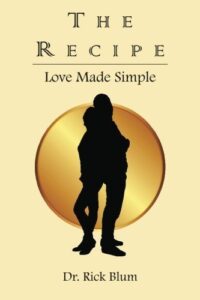Previously, we contrasted balance to perfectionism as life-goals. Yet, how can one achieve such balance?
We all recognize that the middle road is best. So we often hear: all things in moderation; seek the golden mean; find the middle ground; balance your priorities. All this sound good, but brings a challenge. One reason we need to hear about balance so much is that achieving balance is elusive. A second challenge is to find a middle ground that is not mediocre. We will want a balance that is rhythmic in that it moves flexibly and combines the advantages from both sides.
We know from its reputation that the balanced place is supposed to feel good—if only one could find it. As a result, like beachcombers looking for a gold coin without metal detectors, people search back and forth between extremes waiting to feel good. It would be like trying to tune a radio in a spot with poor reception, where no station pops into clear transmission.
To understand it, we need to take a quick chemistry lesson. One need not recall the periodic table of the elements, just those charming little mechanical scales that measured the weights of material.
Recall how one knows when one has arrived at the correct weight for an item on one of those scales. One does not have to wait until the pointer stops moving. As soon as an observer notices that the pointer is moving past the zero point equally in both directions, the two sides are in balance. So, if it moves two marks past zero in one direction and then two marks past zero in the other direction, given enough time it would stop at zero.
The same principle works in search of Aristotle’s ethical mean: Rather than search for perfect balance in some life area, we can find the point at which we seem to be out of balance equally in both directions. I usually call this gauge “reciprocal discomfort.” To illustrate it, I will describe a childhood experience that gradually shaped my awareness of this balancing method.
As a child, I found school to be generally boring. I could not tell why many of my teachers were bothering to teach their subjects, as they did not seem very interested in the topics themselves. Because they were not at all intrigued, it escaped me why I should be. Sometimes, I overcame this through my own inquisitiveness; other times, I did not.
When I failed to generate intrinsic interest, I became interested instead in minimizing the attention that the class would require from me. I would gather all the information that we were mandated to know, having it available for later use. In some classes, but not always, I absorbed enough through temporary recollection to pass classroom quizzes. At the end of the semester, I would cram for exams. Making up a schedule, I divided all the class material into segments and proceeded to try learning it.
This is when I began to notice an odd experience. There were occasions when I prepared this study schedule too long in advance. The signal of this was a feeling of burning in my chest. I eventually realized that this was frustration, but I first supposed this meant that I just did not like studying. Then my further misadventures supplied more data. If I waited too long to study, I felt none of that burning in my chest. Instead, I felt a decided knot in my belly. I knew from other worrisome experiences that this was fear.
What amazed me was my discovery of a third situation. There seemed to be a certain amount of time before an exam during which I felt uncomfortable both ways. Although it was a milder and less uncomfortable version of each discomfort, there was no doubt that I felt some agitation in my chest and some gripping in my middle, both at the same time. Soon, I learned that, for some strange reason, if I began my study when I felt both discomforts reciprocally, I would have the exact time I needed to prepare for the exam.
The effect was so surprising, both to me and to a couple of my teachers, that I was once accused of cheating. This instructor, in whose class I had not spontaneously sponged up enough to pass the quizzes, could not believe my exam outcome. Even my explanation that I finally studied did not impress him. Only my offer to answer any questions he might have about course content, right on the spot, managed to save the day.
In the same way, “reciprocal discomfort” means feeling uncomfortable two ways. The strategy suggests that, for instance, if you feel only as if you are neglecting your work, then you probably are. On the other hand, if you feel only as if you are neglecting your personal life, then this is probably true as well. On the third hand, so to speak (as we are talking about moving beyond dichotomies), if you are feeling as if you are neglecting both elements of your life a little, and you feel uncomfortable approximately the same amount in both directions, then this is a good sign. You probably have found your own mean. This will not approximate everyone’s balance, but just your own. Given enough time in that space, especially when you know where you are, it actually starts to feel good.
Please forward this post (“share button” below) to someone you think it might interest and subscribe if you are not getting notices about these posts.
You can access my more frequent Twitter posts through the button above. In addition, after hitting the Facebook button above, if you “Like” my page, you will get those “Wall” posts right on your Facebook news-feed.



